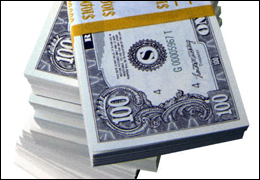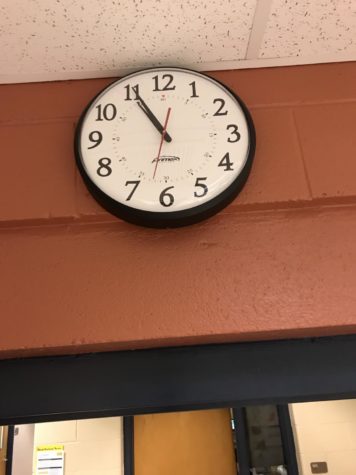Universal Basic Income- Do we need it?
Universal Basic Income sounds nice, but is it really everything that it’s built up to be?

FBI Buffalo Field Office [Public domain]
stacks and stacks of money going toward Universal Basic Income
The definition of Universal Basic Income according to google, “is a model for providing all citizens of a country or other geographic area with a given sum of money, regardless of their income, resources or employment status.”

Andrew Yang, a 2020 democratic candidate for president, is using this model as a platform to gain support from different groups. If you didn’t know better, this idea of Universal Basic Income would sound amazing, especially for young people. What they don’t think about is, where the does money comes from? Has this model been tried and tested before and known to work? These are very important questions we need to ask ourselves. As the United States moves into the future we will have to make changes to accommodate having a larger population, and we will be required to create more jobs. Mr. Yang wants to give every person over the age of eighteen $1,000 a month with no questions asked. This is how he plans to fight unemployment and poverty.
![FBI Buffalo Field Office [Public domain]](https://LafayetteLedger.org/wp-content/uploads/2019/03/Stack_of_money.jpg)
Yang states that we are losing jobs due to automation and more technology, and claims one-third of our work force will be out of the job market within the next 12 years. The plan to pay for this is to implement a 10% value added tax. A value added tax is a tax on goods, products or services a business produces. “It is a fair tax and it makes it much harder for large corporations, who are experts at hiding profits and income, to avoid paying their fair share,” Yang states on his website.
![Marc Nozell from Merrimack, New Hampshire, USA [CC BY 2.0 (https://creativecommons.org/licenses/by/2.0)]](https://LafayetteLedger.org/wp-content/uploads/2019/03/andrew-yang-334x475.jpg)
He goes on to ask why we would give the rich money? This shows the ideology behind the Democratic candidate: it’s ok to rob the rich “If it’s paid for by a Value-Added Tax as in Andrew’s plan, a wealthy person will likely pay more into the system than he or she gets out of it.”
This is the basis of a socialist idea in the making. However, redistribution of the wealth never works and you can’t tax people to steal their income: it’s not right and it’s unconstitutional. Lafayette senior Matt Zayas opined, “It’s not necessary right now, but if we ever got to a point where an outrageous number of people were out of the work force then I’d say it’s a good idea, but I doubt we will ever get to that point.” Even young people can see this isn’t necessary to implement into our economy at this point, we don’t have a reason, our economy is booming and jobs are plenty.
The idea of Universal Basic Income isn’t anything new. It has been tried before in the United States, between 1968 and 1980, and the results from the experiment were not promising. When evaluated the findings showed the desired hours worked by husbands decreased by 9%, 20% wives and 25% by single mothers and single men a staggering 43%.

People who lost their job had a harder time finding a new one and spent more time unemployed than others in states where the experiment wasn’t tested. Husbands’ unemployment time was 2 months longer, almost a year longer for wives and even longer for single mothers. For every $1,000 given from the government the workers job income decreased on average $660, this means the government would have to give citizens $3,000 to increase their net worth by $1,000. Chadrick Irvine, LHS sophomore, feels that “it’s not going to work and it will end up destroying the economy.”

The flaws are easily spotted by anyone who has basic knowledge of economics and inflation. Not only do people see it will not work, they don’t want the handouts either. “In the 2016 General Social Survey, for example, 70 percent of Americans agreed that they would enjoy working in a paying job, even if they didn’t need the money. Moreover, prominent social psychologist Jonathan Haidt argues that work is a central pillar of human well-being and happiness,” according to the Foundation of Economic Education website This tried and tested model of welfare program has failed and shouldn’t be implemented into the United States economy.


